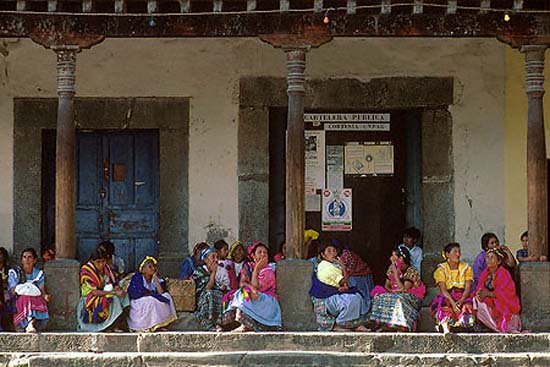
Jason Bedford was in Honduras to give free rabies shots to the dogs of Santa Cruz because there had been an outbreak a few weeks earlier in La Esperanza
My View | An OK day with the dogs in Santa Cruz
By Jason Bedford
Cheque. An interesting word, a throwback to the Standard Fruit Co. days. When taking accounting of items being received or shipped, the U.S. foreman would read something off the list, and the Honduran workmen would call out in their best English "Cheque," or "Check" -- meaning "OK."
There are many different meanings of the word, but today's meaning was perfect: OK. Everything was OK, the day was tranquil and uneventful, a grade A day for a small town in the bush.
I was in Honduras to give free rabies shots to the dogs of Santa Cruz because there had been an outbreak a few weeks earlier in La Esperanza, the capital of the province Intibuca. San Isidro had received the serum and was trying to immunize as many dogs as possible in the shortest time. The town nurse and I split up our load, and with vague directions over rough mountain trails, I started out at dawn to immunize dogs in two towns. Santa Cruz was second.
I arrived in the early afternoon and went directly to the school. Politely, I explained my plan to use the children in the class to gather all of the dogs to immunize them for rabies. The teacher agreed and allowed me to talk to the class. I stood in front of them and calculated my words and translation carefully.
"Children, I am here to immunize dogs for rabies," I told them. "As long as you keep supplying me with dogs to immunize, the teacher has agreed with me that you will not have to have school today."
As my minions did their bidding, the teacher and I made a little clinic outside on the school's patio.
He would register the dog and the owner's information and then give the child a piece of pre-stamped paper saying that a dog has received a rabies shot, marked with the day's date. We waited.
And then they came. Though I thought I had seen it all, I was shocked by the masses of children dragging dogs of every conceivable size, shape and temperament. The dogs were their families' dogs, their neighbors' dogs and even dogs off the street. Practically anything on four feet was being brought forth. They were dragged by ropes, by chains and by fresh green vines woven together. They were carried, yanked by collars and herded in packs with sticks and well-thrown rocks.
The once tranquil setting of Santa Cruz was shattered. People in houses near the school stopped their work and watched the day's entertainment: me.
My technique had been used before: Wrap the leash around a tree or pole two or three times and pull the dog's head firm against the tree. I would then run up and grab a back leg and give it a shot just under the skin. This was working well until I ran into one dog that kept slipping out of the leash and taking off -- much to the laughter of the community.
This dog -- "Corbata," or "Bow Tie" -- was one of the roughest dogs around, and I was determined to take him down. That's when the 8-year-old twin brothers stepped forward and, in my eyes, into fame. They both had small lassos on their belts and volunteered to help wrangle Corbata, much to the joy of the dog's owner and myself.
Their plan was so simple it was genius.
One would lasso the neck of the dog while the other lassoed the muzzle seconds later, and both pulled in different directions. This would immobilize the slippery Corbata and allow me a chance to immunize him. It worked.
Forty-three dogs later, the day was slipping by. Since I had three hours of walking ahead, the town decided I needed to stay the night.
A neighbor supplied food, and I made an impromptu bed from school benches.
After all this, I did get the children out of school for the day.
Over many cups of coffee that night, I told and heard many tales of the "great dog roundup of Santa Cruz".
My memory of the experience is still as clear as the day I was there.
Jason Bedford served as a Peace Corps volunteer in Honduras from 2000 to 2002. He is the the current Penn State recruiter. Contact him at peacecorps@sa.psu.edu.
